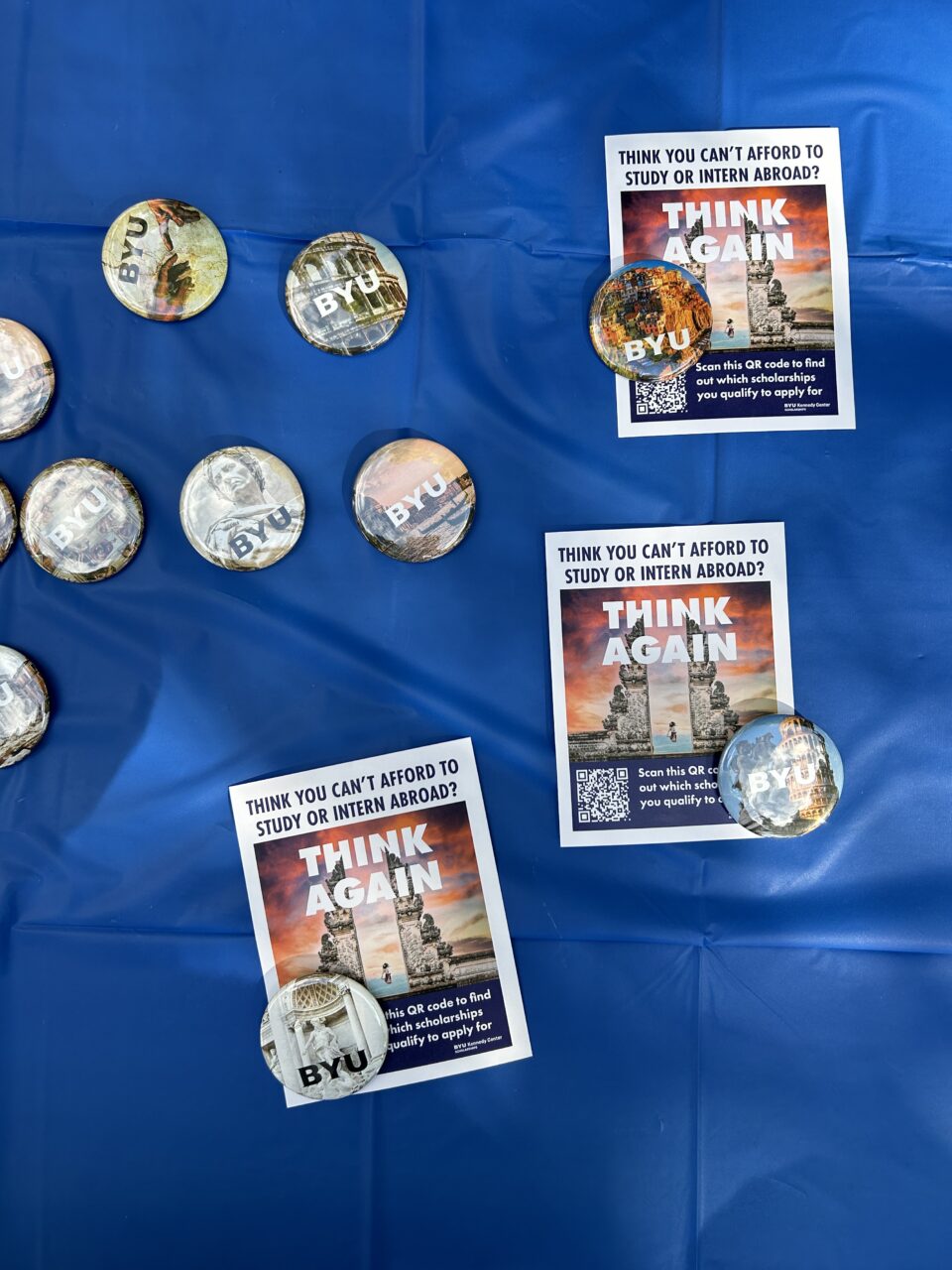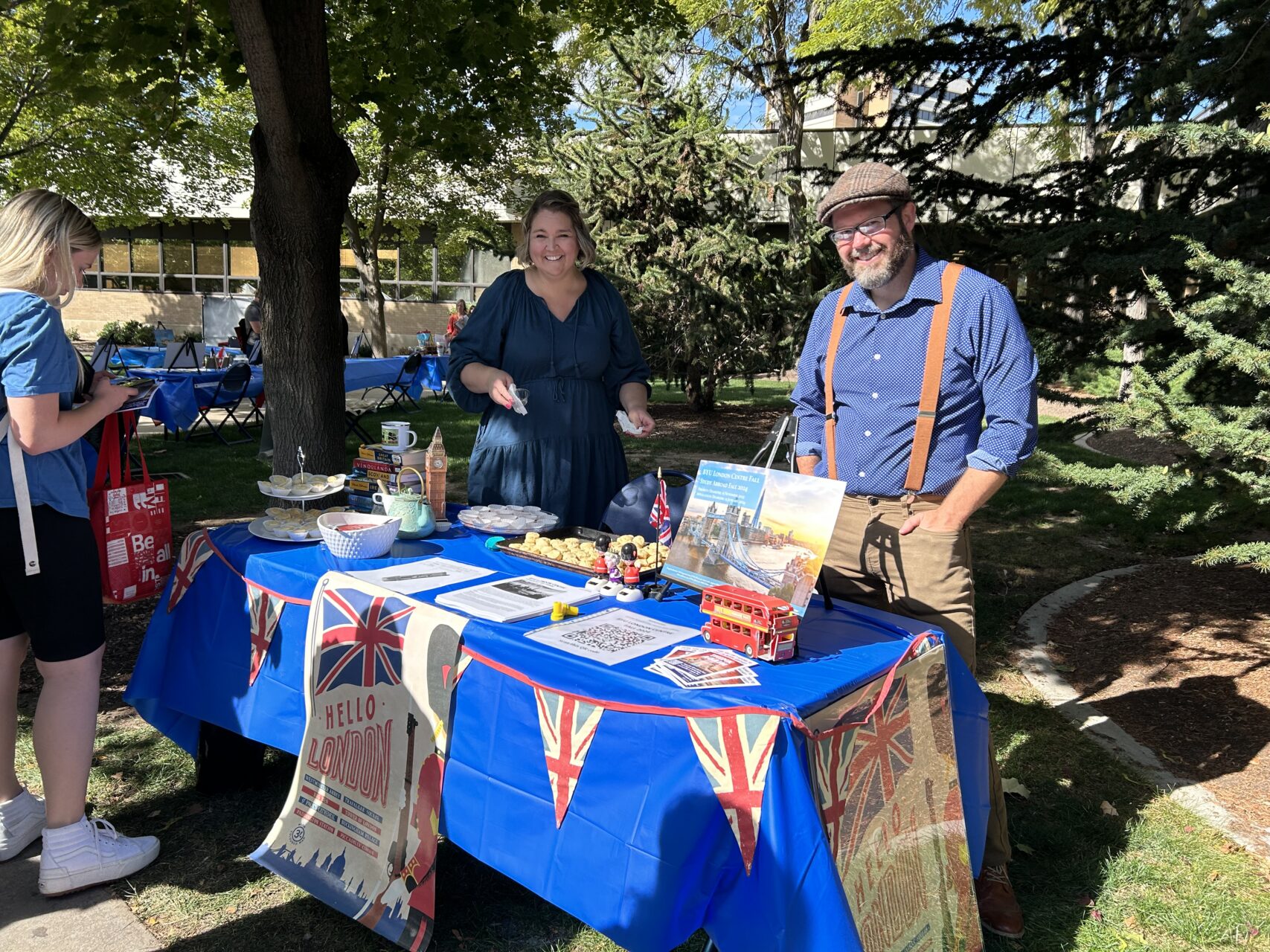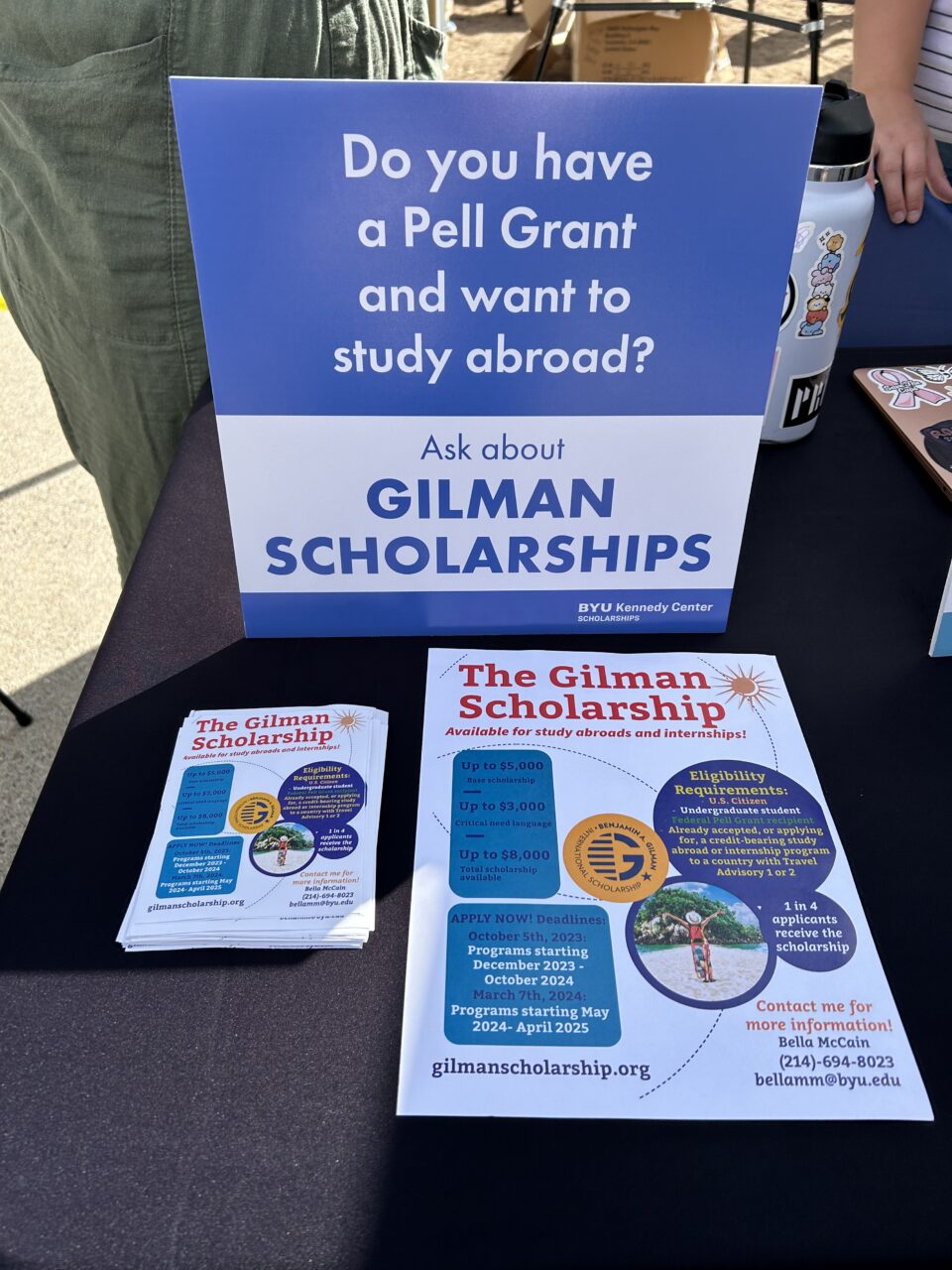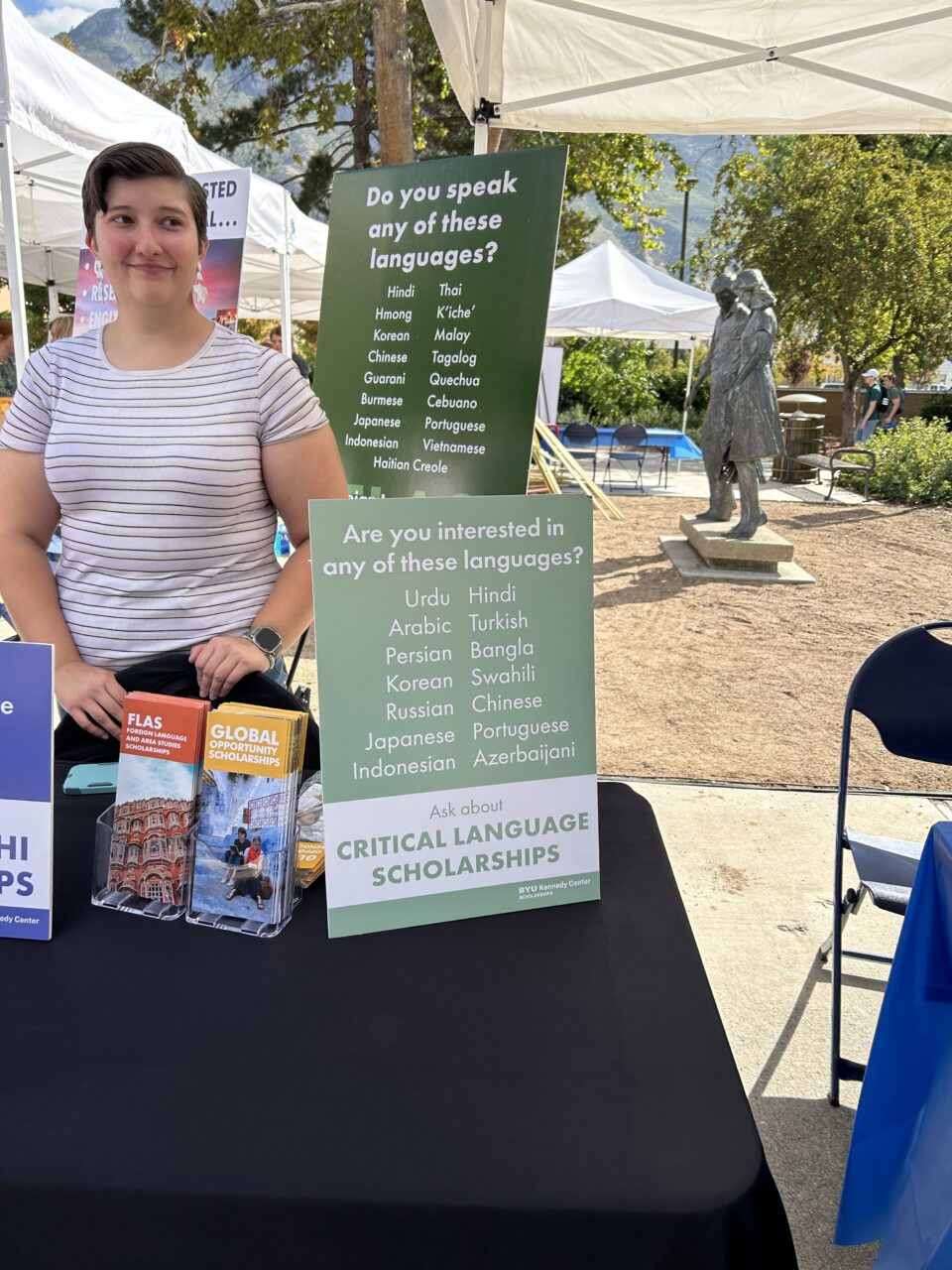
BYU study abroad programs offer a variety of financial aid and scholarship opportunities, allowing more students to participate in international study programs.
BYU hosts a multitude of study abroad programs, international internships, language study programs overseas, direct enrollment courses and field schools. Scholarships can typically apply to any of these programs.

The David M. Kennedy Center for International Studies is hoping to show students just how many resources are available for those interested in studying abroad.
“We’ve made a concerted effort to try and get the word out to students about these scholarship opportunities that are available to help students afford to go on these programs,” James Mayo, Kennedy Center’s International Scholarship Coordinator, said.
A short survey available through the Kennedy Center’s website helps students understand which scholarships they qualify to apply for.
Additionally, more traditional forms of financial aid can contribute to the cost of studying abroad. According to the Kennedy Center website, regular BYU tuition scholarships, Pell Grants and Federal Insured Student Loans may be applied to study abroad programs.
“I fully funded my study abroad with scholarships,” Megan Cann, who studied abroad in Morocco and Spain, said.
She explained she found out about financial aid opportunities from a binder in the Kennedy Center filled with resources and scholarships.
“Even after applying and getting accepted into my program, I was fully prepared to drop out if I hadn’t gotten the Gilman scholarship,” Cann said.

Luckily, Cann received the scholarship and was able to study abroad.
Further funding for BYU students can come from a variety of sources. Many colleges on campus set aside funds for students from their specific school who choose to study their major abroad. Speaking certain languages can also qualify students for scholarships, such as Foreign Language and Area Studies, Critical Language Studies or the Boren Award. Needs-based scholarships are also available.
“There are scholarships that are specifically here on campus, specifically for BYU students, and there are also national scholarships that are from the State Department, the Department of Defense or the Department of Education,” Mayo said.
Mayo encouraged students to find privately available scholarships online.
“I will often have students make lists with their characteristics: where they’re from, what they’re studying and go search for niche scholarships that are out there,” Mayo said. He recommended using Google to find niche scholarships that a student’s particular set of characteristics, skills or interests may qualify them for.
Greg Jolley, professor of Plant and Wildlife Systems, said his students have gotten creative with funding. In addition to funding available through the PWS program, he said some students did side work such as providing fall or spring clean-ups in people’s yards or mowing lawns to fund their studies abroad.
Mayo has also seen students bake cookies, host yard sales and conduct social media campaigns to fund their programs.
“I’ve never, ever had a student who couldn’t cover it”, Mike Dunn, professor of Nutrition, Dietetics and Food Science said.

Dunn and Mayo encouraged students to be proactive in finding financial aid and scholarships, with Mayo advising students who want to study abroad to commit by working, saving, planning and preparing.
“This is something that students should start thinking about from day one at the university,” Mayo said.
He advised students hoping to study abroad to plan as soon as possible, even during their freshman year, because deadlines to apply for scholarships are often earlier in the year than students expect.
“In general, applications are due between November and February, and sometimes students don’t start thinking about applications until February and they’ve missed some applications that were due back in December simply because they didn’t start thinking about it yet,” Mayo said.
For students aspiring to study abroad, Mayo recommended looking for scholarships nine or 10 months ahead of time. Although it requires effort and energy throughout the application and preparation process, he said participating in international study programs is an invaluable experience.
“Participating in these programs abroad is something that Heavenly Father really wants His children to do. Scholarships are one of the ways He is helping to provide hope to students who maybe don’t think that going abroad and studying or interning or doing fieldwork is a reality or a possibility for them, but these scholarship opportunities open doors for students that maybe never thought it was something that they can do,” Mayo said.
Mayo shared seeing the blessings of studying abroad in students lives makes his work rewarding.
The Kennedy Center hosts scholarship information sessions each Thursday at 11 a.m. throughout Fall Semester in 257 HRC for students interested in learning more about funding international study experiences.




